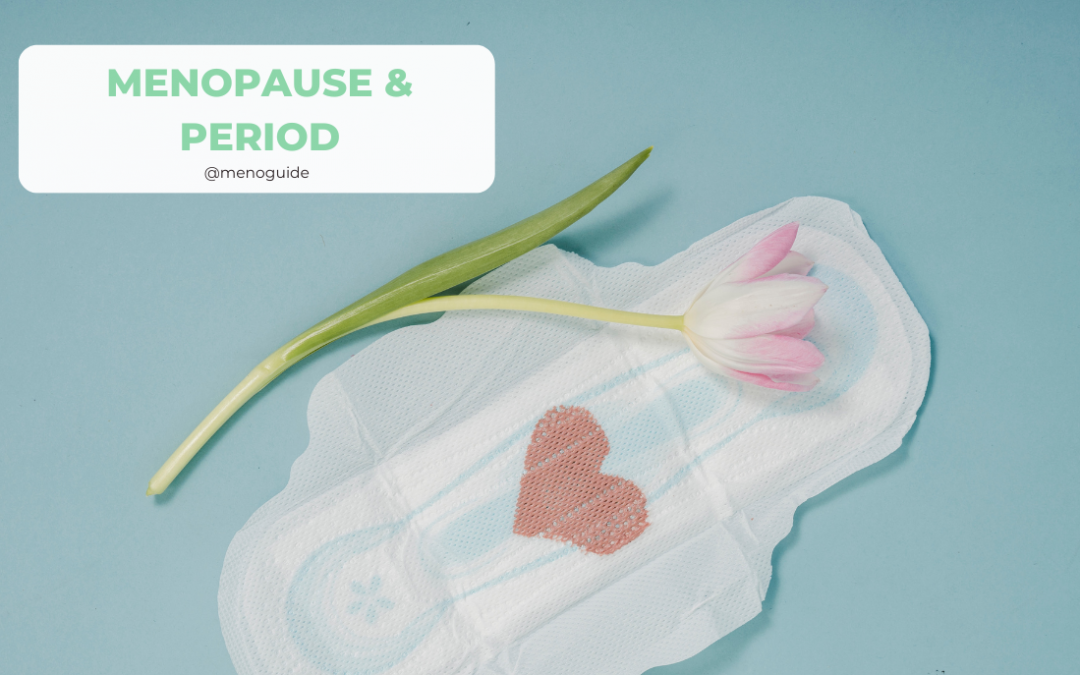Reading Duration: 8 minutes
As women navigate the journey through menopause, one of the most noticeable and sometimes challenging aspects is the transformation of their menstrual cycles. The perimenopausal and menopausal phases bring about various changes in period patterns, leaving many women wondering what’s happening with their bodies. In this blog post, we’ll explore menopause-related period changes, the underlying causes, and treatment options to help you better understand and manage this transition.
Learn more about the perimenopausal phase here.
What are Menopause-Related Period Changes?
- Missing Periods: As you enter the menopausal transition, you may notice that your periods become irregular, and sometimes, they might disappear altogether.
- Lighter Periods: Your menstrual flow may become lighter, leading to shorter and less intense periods than you’re used to.
- Heavier or Longer Periods: Conversely, some women experience heavier or more extended periods, which can leave them feeling drained and fatigued.
- Increased Frequency: For others, periods may become more frequent than the traditional monthly cycle.
- Clots and Flooding: Menopausal women might also experience the passing of clots or episodes of flooding, where the period flows suddenly.
- Sudden Cessation: In some cases, menstruation can stop abruptly, catching women by surprise.
Contraceptive Options and Period Changes
It’s essential to consider that various hormonal contraceptives can also influence your period patterns. For instance, contraceptives like the Mirena™ coil, progesterone-only pills, implants, or injections can alter your menstrual cycle. Even the combined oral contraceptive pill can maintain regular periods during the perimenopause. The combined contraceptive pill gives you a withdrawal bleed rather than a natural period so this may lead to the belief you are still having a natural cycle however this may not be the case
To learn more about contraceptive options and their effects on menstruation, visit this publication from the National Library of Medicine.
What Causes Period Changes During Menopause?
To understand these changes, let’s delve into the hormonal intricacies at play. Your menstrual cycle relies on a delicate balance of hormones. Ovarian hormones, such as estrogen and progesterone, interact with the lining of your womb (endometrium), causing it to thicken. If pregnancy doesn’t occur, this lining is shed during your period.
During perimenopause, hormonal communication between your brain and ovaries becomes disrupted, causing irregularities in the thickening and shedding of the endometrium. This disruption results in erratic bleeding patterns or even complete cessation of menstruation during menopause.
Postmenopausal Bleeding
Postmenopausal bleeding, characterised by vaginal bleeding after 12 months without periods, demands immediate attention. While the cause is often non-serious, it can indicate underlying issues, including cancer. It is very important to consult with your medical advisor at this stage before doing anything further.
you can have a bleed on starting all types of HRT, this may occur in the first 3-6 months of treatment. This usually settles during this time period but if it persists, or you experience new bleeding on HRT, you must seek medical advice.
How Common Are Period Changes?
In a survey by the British Menopause Society, over 50% of women reported changes to their periods during menopause [1]. Period changes typically begin during perimenopause, which can last up to eight to ten years before reaching menopause. The average age of menopause in the UK is 51, with most women naturally ceasing menstruation by age 55.
Treatment Options for Period Changes
If you’re experiencing abnormal period changes, it’s crucial to consult a healthcare professional. Seek medical advice if you notice:
- Heavier bleeding
- Prolonged periods
- Bleeding between periods
- Post-sexual bleeding during menopause
- Resumed bleeding after a year of cessation
Your doctor may perform a full blood count and check your iron levels. Treatment options for irregular or heavy bleeding include:
Non-Hormonal Options:
- Tranexamic acid: A tablet taken during bleeding to reduce flow.
- Mefenamic acid: A tablet similar to ibuprofen, effective in reducing bleeding and relieving period pain.
Hormonal Options:
- Progesterone-only pill
- Combined pill (for women under 50)
- Sequential Hormone Replacement Therapy (HRT)
- Mirena™ Coil
Learn more about each hormonal option and its suitability for different women here by NHS.
Other Options and Procedures:
- Endometrial Ablation: A surgical treatment to address heavy periods.
- Hysterectomy (as a last resort).
Seeking Guidance for a Smooth Transition
If you’re concerned about period changes during menopause, it’s crucial to consult with your GP, gynaecologist, or a specialised menopause clinic. Don’t hesitate to seek help when needed, and remember, you’re not alone on this journey.
By understanding menopause-related period changes and exploring available treatment options, you can better manage this transformative phase of your life. Remember, knowledge and proactive healthcare are your allies in embracing menopause with confidence and well-being.
Reviewed by: Dr. Helen Kini, NHS GP from Flourish for Life
Make sure you follow us on our socials.
References
- Source: Currie H, Moger SJ. Menopause – Understanding the impact on women and their partners. Post Reprod Health. 2019 Dec;25(4):183-190.


